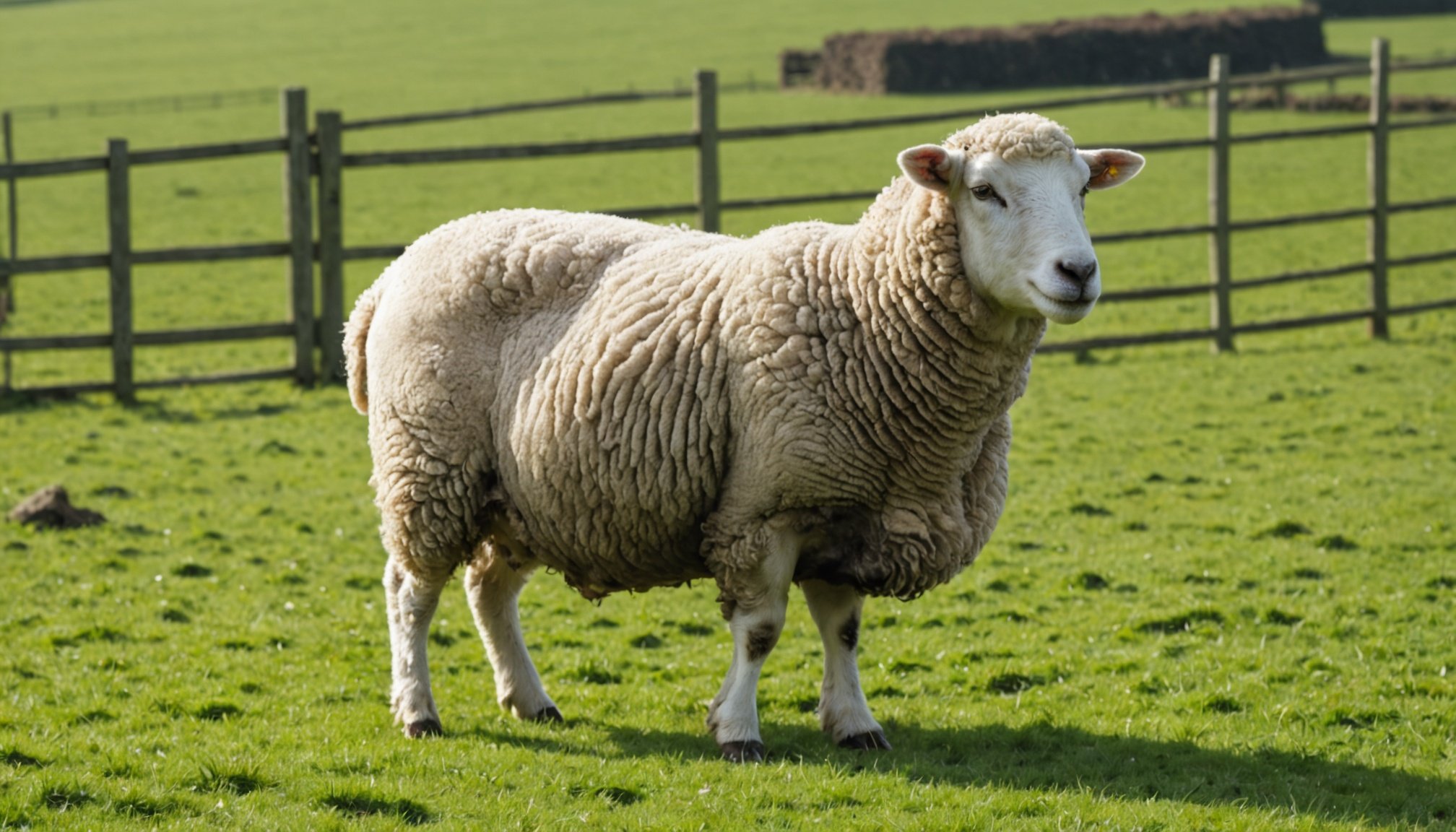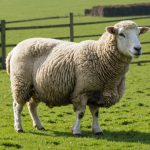Overview of Pet Sheep Ownership
Pet sheep offer unique benefits, creating emotionally rewarding experiences for their owners. Their friendly nature provides emotional companionship, promoting bonding through daily interaction. The social nature of sheep enables them to form strong attachments, not only with other sheep but also with humans, offering a sense of companionship for individuals seeking affectionate and approachable pets.
Sheep enhance rural living by bringing diversity to domestic animal companionship. Unlike traditional pets, sheep require ample outdoor space, making them ideal for countryside settings where they can graze freely. The presence of sheep enriches the pastoral lifestyle, infusing it with character and vibrancy. Their presence fosters a deeper connection to the natural environment, promoting a healthier lifestyle for both the animals and their owners.
Also read : Discover Compassionate Alternatives to Declawing Your Maine Coon Cat
Sheep are socially active creatures, showcasing a range of charming behaviours that make them fascinating companions. Their social interactions allow owners to witness and participate in their complex relationship dynamics. Observing sheep navigate their social hierarchies and forge friendships is both entertaining and enlightening. This social agility reflects their intelligence and adaptability, qualities that endear them to those who appreciate interactive pets. Owners enjoy the rewarding experience of nurturing these gentle, social creatures, which adds unique value to pet sheep ownership.
Practical Benefits of Keeping a Pet Sheep
Keeping a pet sheep can offer tremendous value in the realm of land management and promoting sustainable farming practices. This gentle animal is not merely a charming addition to rural life but a formidable ally in maintaining landscapes naturally.
Also to discover : Mastering the Art of Snake Shedding: Essential Tips for Seamless Care
Natural grazing by sheep aids in the effective management of grass and weeds. Their grazing habits help in trimming grasslands uniformly, reducing the need for mechanical mowing and contributing to the minimization of carbon emissions. This process fosters a balanced ecosystem, proving invaluable to any environmentally conscious farmer.
Additionally, sheep play a significant role in nutrient recycling. Through their manure, they return essential nutrients to the soil, enhancing its fertility. This natural process enriches the environment, promoting healthier plant growth without the dependency on chemical fertilizers.
Furthermore, sheep contribute to biodiversity on rural properties. By selectively grazing, they allow a variety of plant species to thrive, supporting wildlife habitats and preserving ecological balance. As a result, the introduction of sheep to a property can facilitate a rich tapestry of flora and fauna, enhancing the overall health and allure of the landscape.
In embracing the companionship of a sheep, landowners not only gain a delightful pet but also contribute to environmentally friendly agriculture and vibrant rural ecosystems.
Care Requirements for Pet Sheep
Understanding the care requirements for pet sheep is vital for maintaining their wellbeing. It’s essential to focus on areas such as nutrition, health, and maintenance.
Daily Care Routines
Every day, sheep care involves monitoring their environment and behaviour. Ensure your sheep have access to clean water and stock their pen with fresh, quality hay or pasture. Regularly clean their living space to prevent diseases. Observing their daily habits can quickly alert owners to any deviations that might indicate health issues.
Nutritional Needs and Feeding
Sheep require a balanced diet. A typical diet includes hay, grass, and commercial sheep feed which contains necessary vitamins and minerals. Ensure the feed is suited to their specific stage of growth or pregnancy. Introducing new foods gradually can prevent digestive problems. Providing a mineral block is also beneficial for meeting their micro-nutrient needs.
Health Check-ups and Veterinary Care
Routine health check-ups ensure that your sheep are in prime condition. Schedule regular visits with a veterinarian experienced in sheep care. Keep up with vaccinations and monitor for common ailments. Being proactive can prevent minor issues from escalating. Observing the following care aspects is crucial for overall health:
- Grooming and shearing
- Regular hoof trimming
Appropriate grooming reduces the risk of parasites, while maintaining hooves prevents mobility issues.
Compatibility of Sheep with Rural Lifestyle
Sheep can seamlessly integrate into family life and become a cherished part of the local community, especially in rural settings. Their adaptability to various types of rural homes makes them an attractive option for those seeking a harmonious rural living experience. Smallholders often find that sheep are suitable for their smaller plots of land, allowing them to enjoy lifestyle benefits without the need for expansive pastures.
Families benefit significantly from engaging with sheep-related activities. These interactions can range from routine feeding and care to more extensive involvement in sheep husbandry practices. This cooperative engagement fosters family bonding and imparts valuable life skills. Moreover, local communities often have agricultural shows and events where families can showcase their livestock, further enhancing community ties.
Additionally, sheep serve practical purposes beyond companionship. They can aid in landscape management by grazing on grass, which helps maintain pastures and gardens in a controlled manner. Such eco-friendly practices boost the appeal of rural living, emphasizing sustainable lifestyle benefits.
Overall, sheep offer more than just economic advantages; they enrich the rural lifestyle by providing opportunities for individual growth, family cohesion, and community involvement. Their presence in rural settings underscores both the tangible and intangible rewards of this lifestyle choice.
Local Regulations and Responsibilities
Regulations surrounding sheep ownership can vary significantly based on location, making it crucial for potential owners to gain thorough understanding. It begins with familiarising oneself with local laws, as these dictate the requirements and limitations for keeping livestock within residential areas. Often, local municipalities will require specific permits for keeping sheep, and these permits may stipulate the maximum number of animals permissible.
Zoning considerations are also critical. Regulations pertaining to land use and zoning may specify whether keeping sheep is allowed, and they often influence property modifications like fencing and housing. Violating these requirements can lead to penalties or forced removal of the animals, so due diligence is key.
Beyond legality, ethical responsibilities in home sheep management are crucial. Owners must ensure their flock has proper Nutritional care, freedom from distress, and adequate shelter. Compliance with animal welfare laws is as important as any local statute.
Responsible ownership also involves understanding the environmental impact and managing it effectively. Improper maintenance can lead to waste mismanagement, affecting local ecosystems. It’s advisable to consult with local agricultural or livestock authorities to fully grasp these nuances and ensure both legal and ethical adherence.
Potential Challenges of Sheep Ownership
Sheep ownership comes with its own set of challenges, particularly in the areas of care and management. One such issue involves addressing behavioral concerns and training. Sheep can exhibit a range of behaviors that may require intervention. For instance, they might be timid or display stubbornness, which can complicate handling and training. Employing consistent training methods and positive reinforcement can mitigate these issues, ensuring your flock is manageable.
Another common issue is managing conflicts with local wildlife and predators. Sheep, being prey animals, are often targeted by predators like foxes, coyotes, and wolves. To protect your flock, implementing sturdy fencing and employing guard animals such as dogs or llamas can be effective deterrents. Additionally, regular monitoring and securing your sheep during vulnerable times, such as lambing season, can help safeguard against predator attacks.
Financial considerations also play a significant role. Allocating resources efficiently for sheep care—covering feed, veterinary care, and other necessities—can be financially demanding. It’s crucial to plan for these expenses ahead of time and consider cost-effective strategies, like purchasing feed in bulk or sharing veterinary services with other local sheep owners, to help alleviate financial strain.
Visual Highlights of Pet Sheep in Rural Life
Exploring the world of pet sheep offers a glimpse into the rich tapestry of rural living. Through engaging visuals, these animals come to life, showcasing their endearing presence and close-knit relationships with their human companions.
Photos Showcasing Sheep in Various Rural Settings
Images capturing sheep amid pastoral landscapes are truly captivating. From frolicking in sun-drenched meadows to resting under shady trees, each photo serves as a testament to the serene beauty of rural life. Sheep lifestyle images illustrate the symbiotic relationship between these gentle creatures and their environment, highlighting their role in sustainable agriculture.
Infographics on Sheep Care and Benefits
Infographics are invaluable for conveying the essentials of sheep care. They offer a clear glimpse into feeding schedules, grooming, and health checks. Additionally, they underscore the benefits of keeping pet sheep, such as providing natural mowing services and minimizing ecological footprints.
Community Events Featuring Pet Sheep
Pet sheep often find themselves in the limelight at local community events. These gatherings foster a sense of camaraderie as owners share stories and practical advice with peers. Illustrative stories not only entertain but educate, shedding light on the unique joys and challenges of raising these charming animals.
By embracing these visual highlights, one can fully appreciate the enriching lifestyle that accompanies pet sheep ownership.











